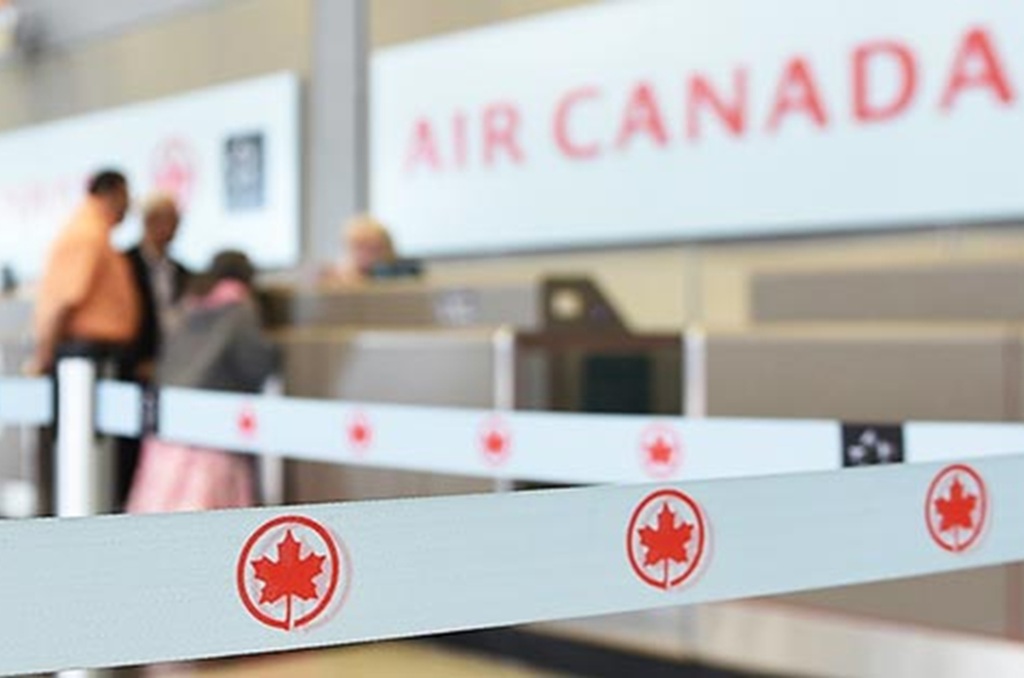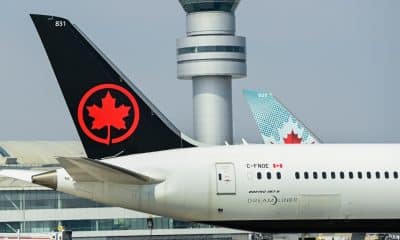Travel
Air Canada Forced to Pay $10,000 For Couples Ruined Holiday

A small claims court has ordered Air Canada to compensate a couple of $10,000 after an overbooked aircraft led them to multiple Canadian airports with the promise of a replacement trip that never materialized, ruining a long-planned holiday.
The Small Claims Court of Yukon issued a stinging verdict concluding that the airline treated the couple shamefully “. Justice Katherine L. McLeod stated that Air Canada violated the Air Passenger Protection Regulations (APPR) several times and subjected the couple to a “horrendous experience.”
The APPR outlines airlines’ obligations to passengers during flight cancellations, delays, and luggage damage.
The couple, who reside in Yukon, had saved for three years to take their first holiday without their children. In February 2023, they planned to take time off work and provide child care for their three children during their nine-day stay at a resort in Cuba.
According to the judicial decision, they discovered it had been overbooked when they landed in Toronto for their Air Canada flight to Cuba.
Passengers were informed that if they agreed to give up their seats, they would be reimbursed and booked on an American Airlines aircraft departing later that day, which may eventually take them to Cuba.
Three Day Nightmare
The plaintiffs accepted the offer but learnt hours later that the flight was inaccessible without explanation.
As outlined in the decision, this marked the start of a three-day nightmare for the couple. They were diverted to Montreal under the belief that there would be a replacement aircraft, only to be returned to Toronto and then Edmonton, with no route to Cuba offered by Air Canada.
Eventually, the couple bought a ticket to Cancun, Mexico, to try to salvage a holiday, which required them to take more time off work, resulting in lost revenue.
The judge determined that the original rejection of boarding caused “extreme stress” and that Air Canada “failed completely” in its “duty to communicate.”
The APPR states that if a carrier provides a benefit to a passenger who volunteers to give up their seats on an overbooked trip, such as putting them on another flight, that passenger must receive written confirmation before the flight departs.
Air Canada Defiant
The pair were initially told that Air Canada had booked tickets for them on an Air Transat aircraft, but when they arrived at the airline’s information desk in Montreal, it had no knowledge of the purported reservations.
“It appears that Air Canada did not even have evidence of a communication with Air Transat or American Airlines,” according to the verdict.
Air Canada had contended that the court lacked authority to impose non-compensatory damages, that weather conditions beyond its control caused additional delays, and that it had met its APPR obligations by paying the plaintiffs $2,400 apiece as compensation for the refusal of boarding.
According to the legal decision, Air Canada stated that it had no other financial obligations in the case.
Air Canada acknowledged that this situation constitutes “denial of boarding,” according to the verdict.
According to the judgement, following the plaintiffs’ legal action, Air Canada repaid them for some out-of-pocket expenses, paying them around $1,800 for lodging and food charges.
However, the judge determined that this did not cover all of their expenses, including the additional cost of booking a new ticket to a different place and the loss of income.
On Wednesday, the plaintiffs celebrated their victory in a Facebook group for Air Passenger Rights, claiming that the case has “helped to set a new precedent that hopefully others can use in their cases.”








































